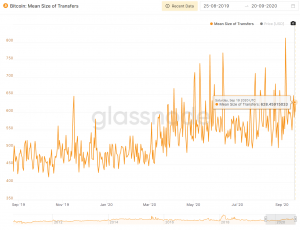Bitcoin is making its way into traditional financial areas, and is increasingly perceived as an investment object. As a digital means of payment, the crypto-currency can be used occasionally, but there is a lack of applications for the broad masses. PayPal now overcomes this shortcoming.
Whilst there have been rumours about this development, yesterday it became official: PayPal will soon offer its US customers the possibility of buying, holding, selling and using different crypto currencies. Beside Bitcoin, Ethereum, Bitcoin Cash and Litecoin are supported. An expansion into further countries is planned for the first half of 2021. The California-based company has 346 million active account relationships around the world and processed $222 billion in payments in the second quarter. More than 300 million consumers and merchants in more than 200 global markets are connected to the PayPal platform.
Increase the usability of crypto currencies in digital commerce
Starting in early 2021, customers will be able to use their crypto currency holdings to pay at PayPal's 26 million merchants around the world. Consumers will be able to exchange their crypto-currency stock into Fiat currency to pay PayPal merchants. For the latter, there will be no additional integration or fees, as all transactions in Fiat currency will be processed at current PayPal rates. There are no service fees for buying or selling and holding crypto currencies until December 31, 2020.
As part of this offering, PayPal provides training content to help account holders understand the crypto-currency ecosystem, the risks and opportunities associated with investing in crypto-currency, and information about block-chain technology.
Broader recognition of crypto-currencies
The acceptance of crypto-currencies by PayPal is a great success, and will push a broad adaptation considerable amounts. The regulatory environment in the USA regarding the offer of trade and services with digital values is not uniformly regulated. The PayPal service is enabled in the USA through a partnership with Paxos Trust Company, a regulated provider of crypto-currency products and services. PayPal has also received a first conditional "bitlicense" from the New York State Department of Financial Services (NYDFS).
In addition to regulatory hurdles, the general introduction of crypto-currencies has traditionally been hindered by their limited usefulness as a medium of exchange due to the volatility, cost and speed of transactions. Although the growth within the Bitcoin network, for example, is considerable, bridges between the decentralized and traditional financial world are missing for a broader field of application.
Number of wallets and average transaction size of the Bitcoin network / Source: Glassnode.com
PayPal can bridge this vacuum in the future. Other financial service providers and banks should follow.
Safekeeping of crypto currencies by banks
In July, the US regulatory authority, Office of Comptroller of the Currency (OCC), surprised the world with a nationwide license for US-based banks to offer custody services for crypto-currencies. Previously, the custody of crypto-currencies in the United States was reserved for specialized companies with special authorizations. However, these usually required a federal license to provide these services. Now, the US banking sector can enter this area.
The rationale for the OCC's move is explained in the public letter by the fact that as financial markets become increasingly technological, it is likely that there will be a greater need for banks and other service providers to use new technologies and innovative ways to provide traditional services on behalf of clients.
In Germany, there has been a law in place since November 2019 that allows banks to store digital currencies for their customers.






